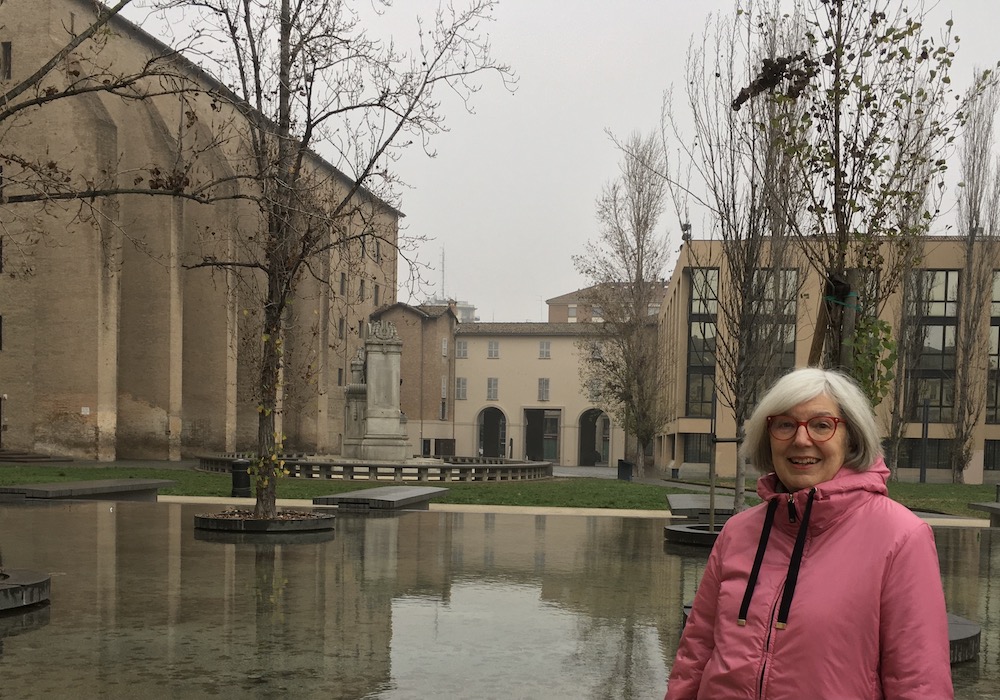If each city is like a game of chess, the day when I have learned the rules, I shall finally possess my empire, even if I shall never succeed in knowing all the cities it contains.
—Italo Calvino, Invisible Cities
Can you describe the mood of Miami as you feel/see it?
Alternately intense and languorous. It's similar to the way people drive here—they're either screaming past you on the highway, shirtless on motorcycles, or dawdling along at two miles an hour in the passing lane. No in-between.
What is your most heartbreaking memory in this city?
Hard to pick a biggest heartbreak, but one might be the day the code enforcement officials went door to door forcing us and our neighbors who'd had “extraneous” (I.e. not to code) plantings in front of our houses to tear out all sorts of lovely shrubs and flowers. I wanted to scream; it was one of those maddening, obtuse moments of group-mind rolling over all nuances.
What is the most extraordinary detail, one that goes unnoticed by most, of the city?
The ocean. Most Miamians live within minutes of the most exquisite, Caribbean-blue waters, yet we'll go for weeks, even months without even glancing at it, much less walking the beach or going swimming.
What writer(s) from here should we read?
There are so many fine Miami-based authors that I hesitate to start naming names, knowing how many I'll forget. Just a very few on the tip of my tongue: Manette Ansay, Russell Banks, Ana Menendez, Edwidge Danticat, Maureen Seaton, John Dufresne.
Is there a place here you return to often?
I love the pool at the Biltmore Hotel in Coral Gables, a gorgeous sapphire oasis lined by palm trees. You can order lunch by the water, swim, sunbathe, and there's often gentle music. It's a wonderful place to write, like a tropical daydream.
Is there an iconic literary place we should know?
We have a remarkable independent bookshop, Books & Books. It's a gracious, elegant spot with a hacienda-style courtyard; readers and authors have gathered there for years. I've written books there, run into famous poets, served baklava, watched independent films, entertained editor and agents, and danced the merengue all in that courtyard. It's owned by Miami's literary patron saint, Mitchell Kaplan, an incredible visionary in the world of arts and letters.
Are there hidden cities within this city that have intrigued or seduced you?
There are so many strange, special nooks and crannies here. The downtown area alone is filled with odd little alleys and rambling weird buildings. I love the chic cool of the Design District, the edge of Wynwood, the cultural layers of Hialeah, Little Haiti, Overtown, the funky vibe of Coconut Grove, and of course, the preening, enchanted kingdom of Miami Beach.
Where does passion live here?
Miami is filled with extraordinary tropical gardens and preserved hammocks and beaches, true labors of love, presided over by volunteers. These places are like gorgeous distillations of what is most beautiful, unique, and fragile about this place—there are rare orchids, birds, fish, and fruits, all nurtured and protected here, ethereal treasures, inspiring and deeply moving.
What is the title of one of your works about Miami and what inspired it exactly?
I might call my latest novel, Birds Of Paradise, an extended love poem to Miami. In part it grew out of watching local news reports about runaways and thinking about what an easy, seductive place it was to get lost in. And in part, I made Miami such an important element in that novel precisely because we'd lived there for several years and I felt like I wanted to know it better, to love it better; I wanted a home, after years of moving around, a place I could finally commit to.
Inspired by Levi, “Outside Miami does an outside exist?”
Like many cities, I think Miami is very much a state of mind as well as a geographical space. Its tropical vibe, the lush seductions of it multicultural currents, its many languages, its glorious nearly hedonistic landscape all create an experience that transcends its physical boundaries. It's a surprise, a disappointment, and a joy all at once, not necessarily an easy place, but never ever boring.
Diana Abu-Jaber grew up in an Arab-American family in Syracuse, New York, and often writes about cultural collisions, questions of home and identity. Her newest novel, Birds Of Paradise, is an Indiepicks selection; it recently made the Washington Post and NPR's Most Notable Book lists for 2011, and is a finalist for the Northwest Bookseller's Award.
Her novel, Origin was named one of the best books of the year by the LA Times, the Chicago Tribune, and the Washington Post. Her second novel, Crescent, won the PEN Center Award for Literary fiction and the American Book Award. Her first novel, Arabian Jazz won the Oregon Book award for Literary Fiction. The Language of Baklava, her memoir, won the Northwest Booksellers’ Award.











